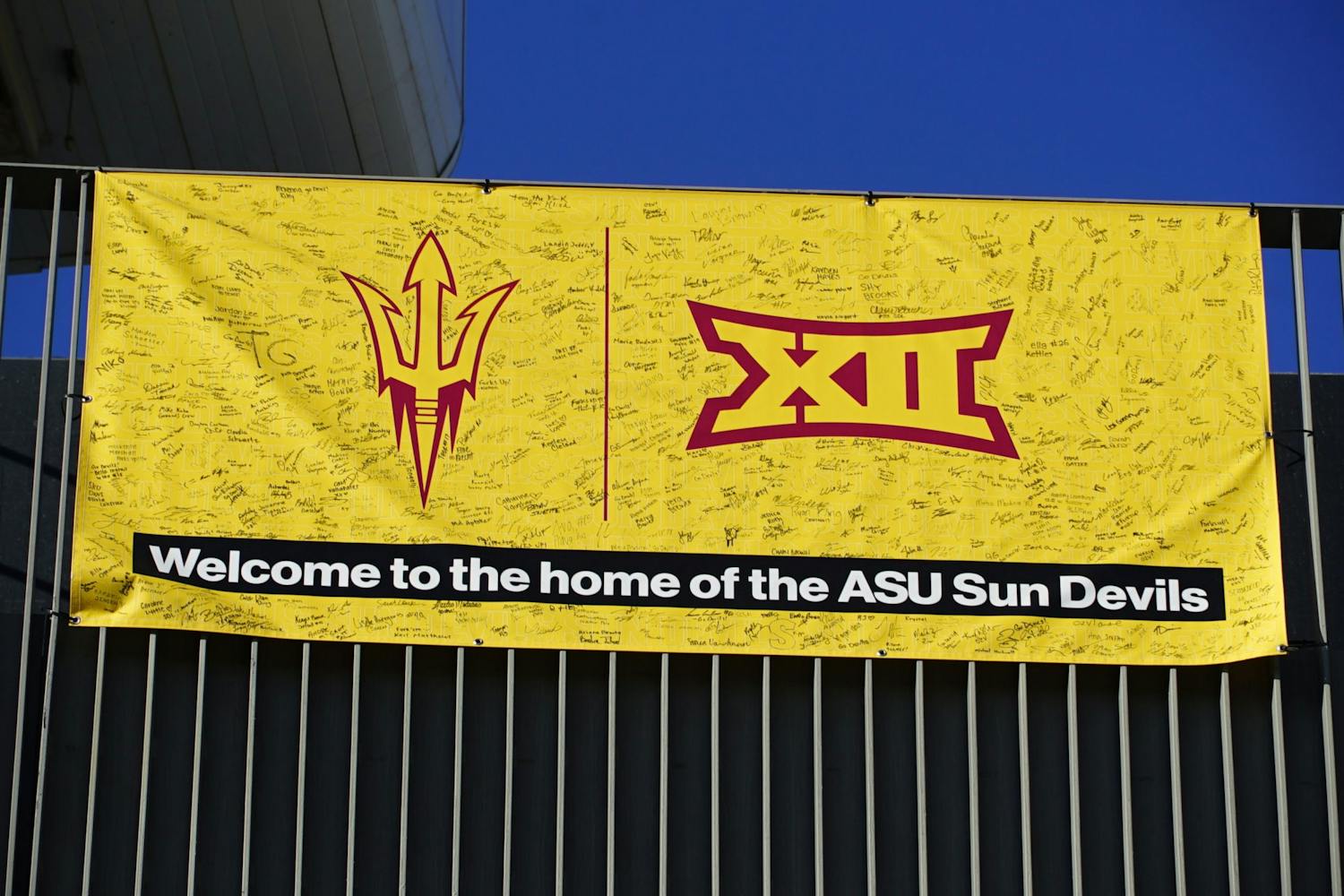The secondary education turf war for the Phoenix market has begun as Grand Canyon University will begin its first year of Division I athletic play this fall, much to the ire of ASU and Pac-12 officials.
GCU, the first for-profit institution allowed into NCAA Division I athletics, begins its reclassification period as it makes its move from Division II to Division I athletics, but the battle has just begun as ASU is adamantly opposed to the move.
ASU spokeswoman Julie Newberg said in an email that ASU is opposed to granting for-profit schools entry into Division I athletics because the University is concerned about "how athletics fit within the academic mission of for-profit universities."
"For-profit colleges are operated as businesses and are not accountable to their faculty or students," she said. "Their primary responsibility is to their stockholders. ... We do not believe for-profit schools provide a good foundation to support student-athletes, who work so hard to balance significant time commitments to sports and their academic work. We cannot play teams that exist for profit and use their games ... to advance their stock prices, as was discussed by Grand Canyon University during a recent telephone call with investors." Newberg cited reports, including one by the US Senate Committee on Health, Education, Labor and Pensions, which suggest that many for-profit schools do not invest properly into programs that support student success.
"For example, according to a U.S. Senate committee report, Grand Canyon University spent more money on marketing in 2009 ($3,389 per student) than it did on student instruction ($2,177 per student) and enjoyed a profit ($1,848 per student) almost equal to its instructional costs," she said. "GCU in 2010 employed 1,065 student recruiters 478 student services employees and three career services employees. These figures may indicate why 52.7 percent of the students enrolled in GCU in 2008-09 had withdrawn from school by 2010."
GCU spokesman Bill Jenkins refused multiple attempts for an interview, but, according to a statement on the GCU website, the for-profit school is accredited by the same body that accredits ASU and other state universities in Arizona.
The statement also said that President Michael Crow has instructed ASU athletic directors to cancel all previously scheduled contests with GCU and has refused multiple invitations to meet with GCU administrators.
Because it is a private university, GCU does not receive state subsidies, pays taxes in the 40 percent tax bracket and has spent $300 million from its cash reserves during the past four years on the educational infrastructure of the University, according to the statement.
"We are clearly investing in our students and our school. ... Again, we are disappointed in these attacks against our reputation. We believe the real motivation is the competitive environment for both traditional and non-traditional students in Arizona. Arizona State is a Research I university that is well-respected, but we believe there is also room in the state of Arizona for a private, high-quality Christian university with low, competitive tuition rates,” according to the statement. Jared Black, alumnus and former president of the Higher Education Student Association at ASU, said he thinks that for-profit universities get a "bad rap" and are incorrectly perceived as "diploma mills," when in fact they can provide a quality education and may be filling a much needed educational niche.
"Research suggests that in the next 20 or 30 years, 60 percent of our workforce is going to need a college degree," he said. "And the current state and public universities that we have now are not going to meet that demand, so for-profit universities will be where the rest of that need is met."
Black, an education Ph.D. student at University of Kentucky, said he believes that for-profit universities represent another step into what we, as a society, consider higher education.
He said secondary education is constantly evolving while the for-profit university model is becoming more popular as people realize that the value of the diploma is comparable to a non-profit university.
"If an accrediting body is saying that this for-profit university is just as good as a private or public non-profit school, then that offers a level playing field," he said.
Black said he is not for or against for-profit universities, but he believes that the goal of any institution of higher education should be to make sure that they are educators first and businessmen second. He said he believes that a university education should "make a real difference in its students' lives."
"Whether a school is for-profit, non-profit, public or private, any student should be able to say, 'Will this institution give me the best opportunity to find employment and grow as an individual?'" he said. "And I don't think the answer to that is necessarily based on if the school is making money or not."
Reach the reporter at npmendo@asu.edu or follow him on Twitter @NPMendoza
Editor's note: An earlier version of this story attributed an incorrect partial quote to University of Kentucky Ph.D. candidate Jared Black. It has been updated to reflect the correct wording.



